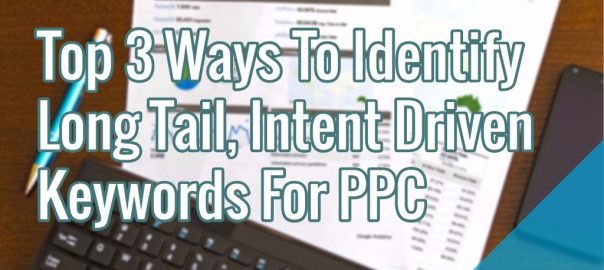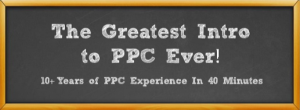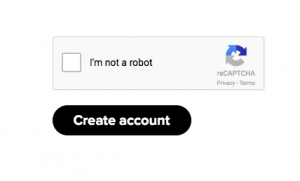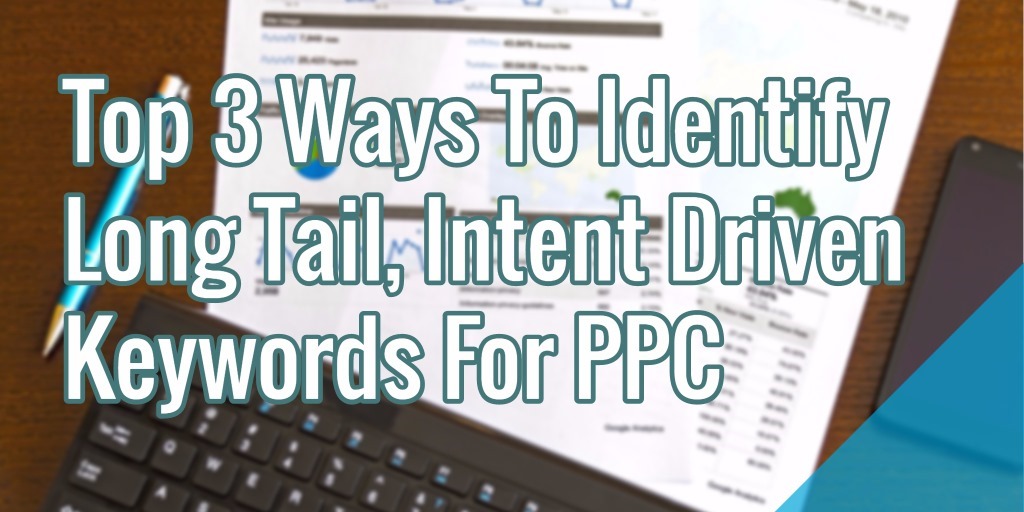
As the paid search landscape has become more competitive, Google has simultaneously made campaigns increasingly more complicated and more expensive.
While intent-driven core keywords are considered the Holy Grail for results-driven paid search campaigns, there are often better (less expensive) long tail keywords that have far reaching benefits for digital marketing campaigns. The only challenge is how to identify them and utilize them to get the maximum return on your ad spend.
In my experience, there are three sure-fire ways to identify intent-driven long tail keywords that offer the most bang for your buck.
1. Use a tool like SERPs to do high-level keyword research
I use SERPs’ keyword research tool almost daily to help with a number of different marketing initiatives – especially now that Keyword Planner gives 10-10K search volume ranges for pretty much everything.
This tool is extremely helpful for identifying high volume, low cost search queries that you can capitalize on with paid search, content and SEO. Take for example “buy laptop.” Doing a quick search on SERPs, you can quickly pick out at least four potential keywords to test in a campaign:
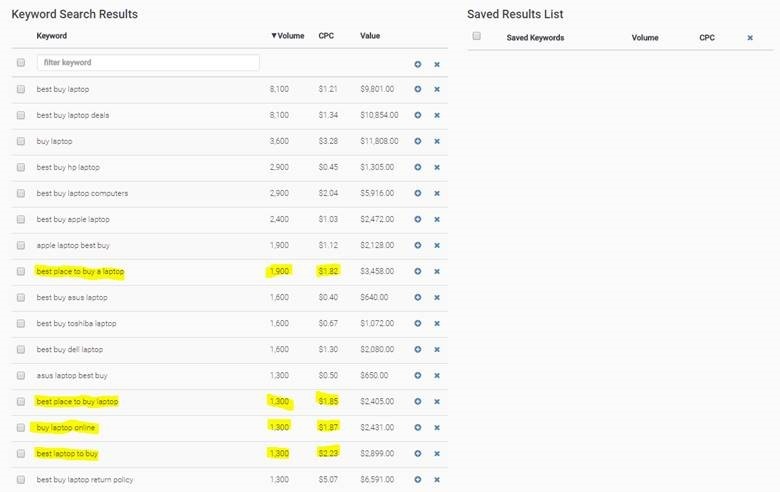
2. Identify blog posts and landing pages that are driving conversions organically
Another great way to find new keyphrases to test in PPC campaigns is to track conversions coming through your website via organic. For instance, if you have an eBook that is generating a lot of qualified traffic and high quality leads then run a test campaign with several low cost, long tail keywords driving traffic back to that landing page.
If you want to take this strategy to the next level, look at the times of day that page drives the most traffic and conversions to minimize the cost until you have enough data to determine whether or not it’s driving enough results to warrant a longer term campaign.
3. Pull quarterly Adwords reports to identify keyword opportunities
Although this is the most time consuming of all the tips listed here, this method has the most potential to truly impact your PPC results. By doing this you have the chance to sift through every keyword associated with each campaign and do a health check on whether or not you are on the right track with targeted keywords.
Are there keywords in a campaign that aren’t getting any click-throughs from search? If they’re intent-driven and qualified search terms then it’s a good idea to look into the copy you have on the ads tied to that phrase. If there are click-throughs that immediately bounce back out then you’ll want to investigate whether or not you have the right content and offering on the associated landing page.
The biggest opportunity with this type of deep-dive report is to filter through each campaign to identify long tail keywords that you may not be bidding on, but should be due to factors like intent, CTR, etc. It’s also a great chance to ferret out search terms that you are bidding on, but due to performance, cost, intent, buying stage, etc. should be targeted through content marketing or organic search instead.
Key Takeaways
Although you may not realize it, the cost of highly competitive core keywords or unqualified, one-off keywords can add up to quite a lot over time if you don’t pay attention and optimize paid search campaigns on a consistent basis.
If you invest the time to go through these exercises at least once a quarter (ideally weekly or monthly), you may just find that you can significantly lower CPCs and better meet the needs of target audiences looking for your product or service.
Top 3 Ways To Identify Long Tail, Intent Driven Keywords For PPC
The post Top 3 Ways To Identify Long Tail, Intent Driven Keywords For PPC appeared first on Search Engine People Blog.
Search Engine People Blog(46)
